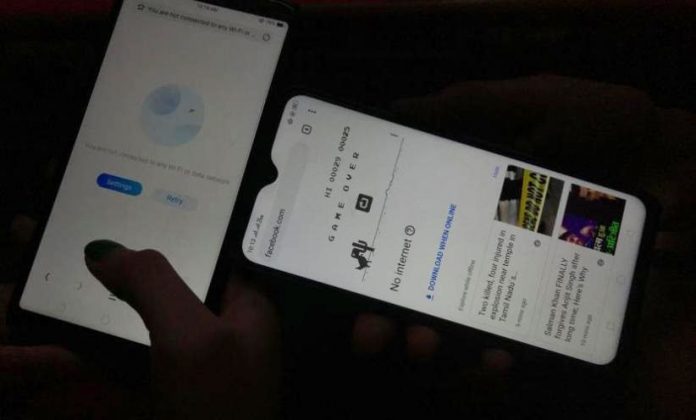
NEW DELHI — Surfshark, a cybersecurity company, has conducted a comprehensive analysis of the 2021 UN Human Rights Council (UNHRC) resolution on human rights on the internet. The study revealed that despite supporting the resolution, India and 13 other countries have imposed significant internet restrictions, raising concerns about their commitment to safeguarding online freedoms.
Analyzing UN resolution and Surfshark’s Internet Shutdown Tracker
The UN resolution on human rights on the internet aims to protect and promote the fundamental rights of individuals in the digital realm. Surfshark undertook an examination of countries’ positions in the resolution and cross-referenced them with data from their Internet Shutdown Tracker.
This analysis allowed Surfshark to identify 14 countries that not only pledged their support for the resolution but also violated their commitment by implementing internet restrictions.
Governments manipulating public and stifling free speech
In an era where internet shutdowns have become a grave concern, authoritarian governments frequently exploit such measures to manipulate the public and suppress free speech. The UN resolution seeks to openly condemn these shutdowns and other forms of online speech restrictions.
However, it is disconcerting that despite public support for the resolution, 14 countries resorted to imposing internet restrictions. It is crucial to promote an open and accessible internet and exert pressure on nations to uphold their commitments concerning human rights online.
According to Gabriele Racaityte-Krasauske, Surfshark spokeswoman, “In today’s world, internet shutdowns have become a major concern. The UN resolution on human rights on the internet aims to make countries openly condemn these shutdowns and other ways of restricting online speech. It’s important to promote an open and accessible internet and pressure countries to uphold their commitments regarding human rights online.”
Countries violating the pledge
The countries identified by Surfshark’s analysis include India, Sudan, Cuba, Uzbekistan, Burkina Faso, Pakistan, Russia, Brazil, Armenia, Indonesia, Mauritania, Nigeria, Somalia, and Ukraine. Surfshark’s Internet Shutdown Tracker has recorded a total of 58 internet disruptions in these 14 countries during or after the adoption of the resolution.

India’s troubling record
Among the countries, India stands out as the most significant violator, with 19 instances of internet disruptions since the adoption of the resolution in 2021. It is worth noting that if we include the Jammu & Kashmir region, the number of disruptions would be even higher, amplifying concerns about the country’s commitment to a free and open internet.
Other notable offenders
Sudan follows closely with nine restrictions, the first occurring amidst the 2021 military coup. Meanwhile, Nigeria and Ukraine had ongoing restrictions at the time of the resolution’s adoption but did not impose new restrictions since then. Nigeria had banned Twitter a month prior to the adoption, and the ban persisted until January 2022.
Ukraine’s blocking of popular Russian apps in 2017 as part of sanctions in response to the annexation of Crimea remains in effect. It is important to note that Ukraine’s case cannot be classified as anti-democratic censorship but rather as a response to counter Russian propaganda.
Looking ahead and holding nations accountable
The Human Rights Council convenes regular sessions to address crucial global issues, including human rights on the internet. The upcoming 53rd session in the summer of 2023 will play a significant role in shaping the agenda regarding these rights.
Surfshark remains vigilant in monitoring any updates related to UN resolutions on human rights on the internet, emphasizing the need to hold nations accountable for their actions.
Conclusion
Surfshark’s study shines a light on the disconcerting actions of countries that publicly supported the UN resolution on human rights on the internet but subsequently violated their commitments.
With the proliferation of internet restrictions globally, it is essential to ensure an open and accessible internet that respects individuals’ rights. Continued scrutiny and pressure are crucial to encouraging governments to uphold their pledges and protect online freedoms for all.
Follow Us
The Kashmir Pulse is now on Google News. Subscribe our Telegram channel and Follow our WhatsApp channel for timely news updates!










